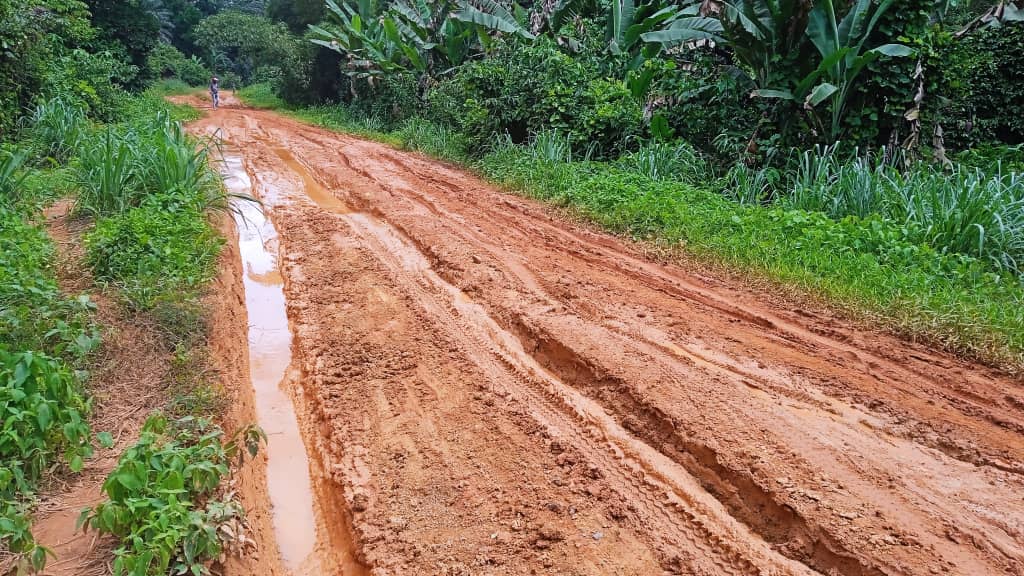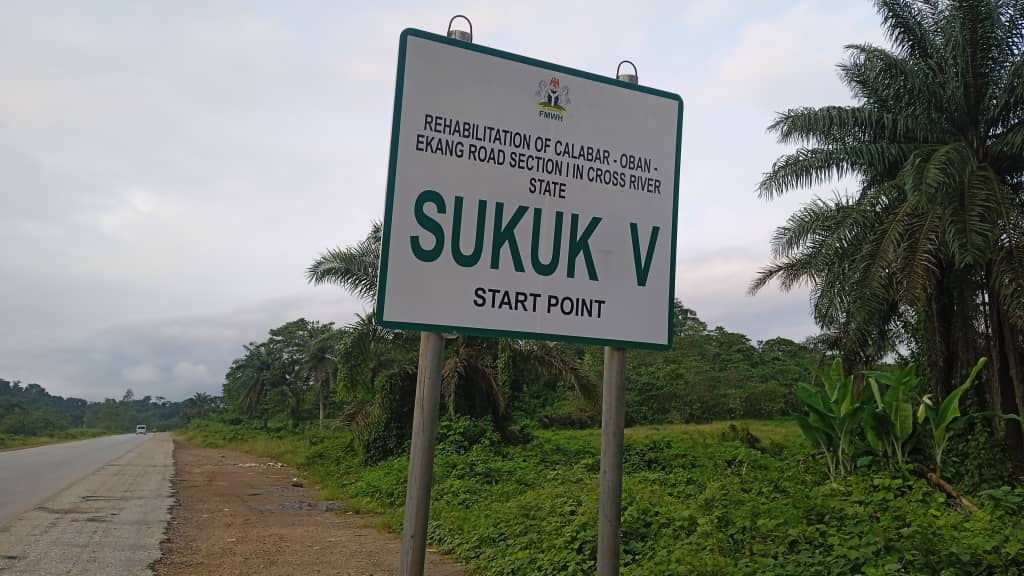By Patrick Obia
From the Millicent filling station around Effio-ette, the appalling condition of Calabar-Oban-Ekang Road becomes more apparent as commuters and motorists dread passing the road.
The federal government through the Federal Ministry of Works and Housing, with its objective of improving transportation infrastructure and restoring the nation’s road network, approved NGN169 billion for the rehabilitation of the road and nine other roads in 2019.
The sum of over N27 billion was awarded to Messrs Setraco Nigeria Limited with a completion date of 48 months for the rehabilitation of the 35-year-old Oban-Ekang Road.
Since the contract was awarded, less than 20 percent of the contractual amount has been released by the federal government, according to those who know about the project. Then the contractor commenced the rehabilitation but abandoned the construction after a few weeks.
As the contractor left the site, a bridge linking two communities along the road in Akamkpa collapsed.
According to the then Minister for Works and Housing, Babatunde Fashola, the rehabilitation of the approximately 60Km Calabar-Oban-Ekang Road (Section1) would generate between 400 and 500 jobs with 40 percent of the jobs for senior Nigerians and 100 percent for intermediate workers.
Beyond the continued deterioration after its abandonment, politicians took advantage of its bad state, including the collapsed bridge to win votes during the 2023 general elections in the state as major political party candidates visited the communities along the road to promise them that they road would be rehabilitated if elected.
Crippling Economic Activities
The Calabar-Oban-Ekang Road, like other abandoned roads across the state, is crippling economic activities in Akamkpa Local Government Area. While travelers battle with the deplorable state of the road, peasant farmers are not left out as they find it difficult to convey their produce to town. They are left with the option to either sell it at a giveaway price or allow it to perish.
“I don’t know if there is any word I can use to describe the worst state of this road. Apart from spoiling bikes and cars, it affects businesses. I know the amount I pay conveying goods and myself down to Calabar,” said Arira ThankGod, a regular commuter on the road.
A motorcycle rider Eric Okon Oscar said the road has done more harm than good to their bikes and cars. The young rider said: “Riding along this road has not been easy. I fall almost every day because there are some spots you enter, and coming out is a problem. We change the brake pedals very often. The government both at the federal and state should please come to our aid.”
Meanwhile, the Senate in its plenary last July urged the Federal Ministry of Works and Housing to review the contract for the rehabilitation of the Calabar-Oban-Ekang Road as well as increase the funding for the project.
The resolution of the Senate followed the adoption of a motion sponsored by the senator representing Cross River South, Asuquo Ekpenyong Jr. who described the road as “an important transport corridor and commercial gateway,” to the Republic of Cameroon which has been completely cut off.
Asuquo argued that the road has “suffered the worst form of neglect in the history of road maintenance and rehabilitation in Nigeria despite having featured in successive budgets as capital projects without execution.”
The Senate, in its resolutions, called on the Federal Ministry of Works and Housing to review the ongoing contract and fund it to enable the contractor to commence and complete the rehabilitation works.
The Federal Ministry of Works and Housing didn’t respond to multiple requests for comment by the CrossRiverWatch. A source in the Ministry and an engineer who is familiar with the project said that the project stalled due to poor funding from the ministry.
The source disclosed that the contractor Setraco Nigeria Limited was only given N4 billion out of N27.7 billion for the 60 km road.
“The contractor pulled out of the site because, on our part, the funding is very poor. Now when the little funding came, the communities say why would you come and displace us without compensation? How much is the compensation, just 650 million Naira.”
He added that “it is a four-year project because they were to commence work in July 2019 and end in July 2023. The contract has expired, and the contractor needs to apply for what is called an ‘extension of contract’ for an extension of time.”
Lawrence Peter, speaking on behalf of the executive director of Policy Alert, Comrade Tijah-Bolton Akpan, said it is high time the civil society and communities wake up and ask pertinent questions, especially on contracts and projects being abandoned.
“There should be a probe to know why the project is stopped halfway by the government and the contractor. It is something we need to probe deeper and deeper to know who is liable and come out with something concrete,” Peter said.
Setraco Nigeria Limited did not respond to multiple requests for comment by the CrossRiverWatch.
This investigation was produced with support from Civic Media Lab.


Leave feedback about this